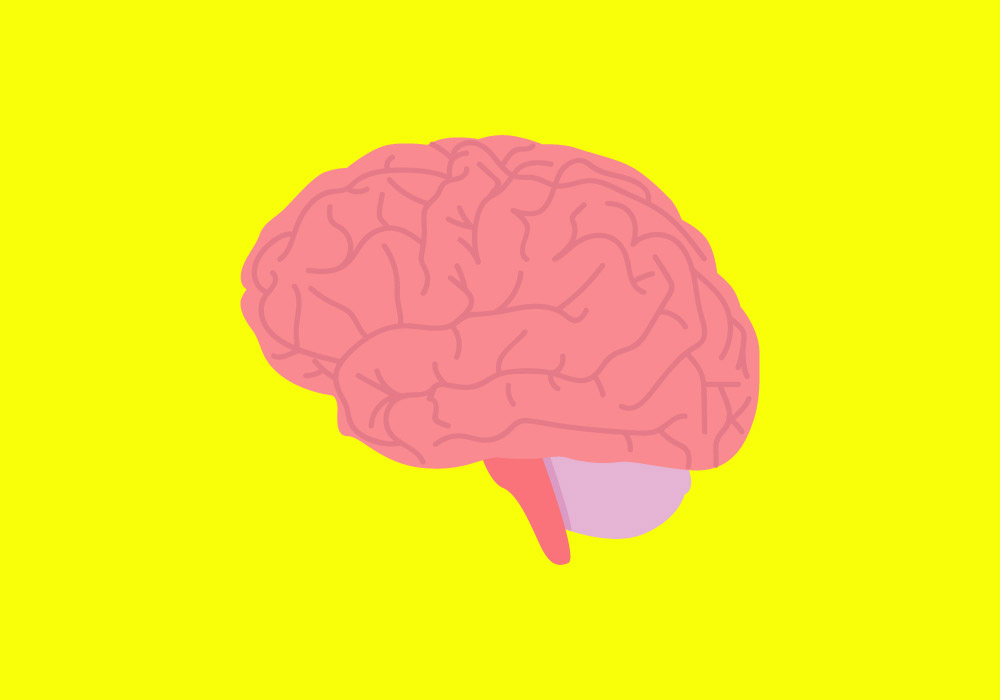
Body fat is linked to a number of adverse health effects, including increased risk of heart disease, type-2 diabetes and breathing problems. The latest study finds an intriguing link between body fat, especially around the middle, and the brain.
In a study published in Neurology, researchers analyzed brain images from nearly 10,000 people enrolled in the UK Biobank study, which includes health information from more than 500,000 volunteers who continue to update their medical histories. In the study, scientists compared body mass index (BMI) measurements as well as waist-to-hip ratio recordings taken between 2006 and 2010.
The scientists found that people with both higher BMI (defined as equal to or greater than 30 kg/m2) and higher waist-to-hip ratio measurements had lower grey matter volume in the brain compared to those who were leaner. This effect remained strong even after researchers accounted for other factors that might affect brain volume, including age, smoking history, education, physical activity and history of mental illness.
“The take-home message is that being overweight and obese has a multitude of effects on health, so it’s unsurprising that obesity is also going to have an effect on our brain health,” says Mark Hamer, professor of exercise medicine at Loughborough University in England and lead author of the study.
Looking at both BMI as well as waist-to-hip ratio clarifies what role different types of body fat may play in affecting the brain, Hamer says. BMI is a general reading of body fat, but since it looks at weight compared to height, taller people and those with more muscle mass can have higher readings, even if they’re lean. Fat accumulated around the middle, which would be represented by a high waist-to-hip ratio, tends to have more toxic effects as it tends to surround abdominal organs like the liver, stomach and intestines than subcutaneous fat, which forms under the skin, by triggering inflammation that can drive everything from heart disease to conditions like arthritis. Hamer’s findings confirmed that trend, since he found that people with high BMI readings and lower waist-to-hip ratios showed similar grey matter volumes to people who were not obese. People with both high BMI measurements and high waist-to-hip ratios, on the other hand, showed the lowest grey matter volumes.
While the results point to a possible association between obesity and brain volume, they do not establish that body fat necessarily causes changes in the brain. Because the study only analyzed body fat and brain images at a single point in time for all of the participants, it’s also possible that the reverse effect could be occurring, and that brain changes are responsible for changing eating habits and satiety and therefore driving the increase in body fat. That also means the study can’t explain what effects the change in grey matter might have. While grey matter is involved in reward processing and certain aspects of controlling behavior, it’s not clear whether body fat is a driver of these changes in grey matter, or the result of them.
To find that out, researchers would have to follow the same people over time and record changes in body weight and brain volume. “It would be good to see if experimentally induced weight loss actually impacts on changes to the brain,” says Hamer. (Still, it’s unlikely to happen, given the cost and time it would require to scan tens of thousands of people over years or even decades.)
But in the meantime, the results confirm the benefits of staying lean: not just to lower risk of heart-related problems, but to possibly keep the brain healthy as well. Hamer notes that he recently published data showing how physical activity may increase grey matter, suggesting that exercise may be a way to counteract some of the negative influences obesity might have on the body and brain.
More Must-Reads from TIME
- Donald Trump Is TIME's 2024 Person of the Year
- Why We Chose Trump as Person of the Year
- Is Intermittent Fasting Good or Bad for You?
- The 100 Must-Read Books of 2024
- The 20 Best Christmas TV Episodes
- Column: If Optimism Feels Ridiculous Now, Try Hope
- The Future of Climate Action Is Trade Policy
- Merle Bombardieri Is Helping People Make the Baby Decision
Contact us at letters@time.com